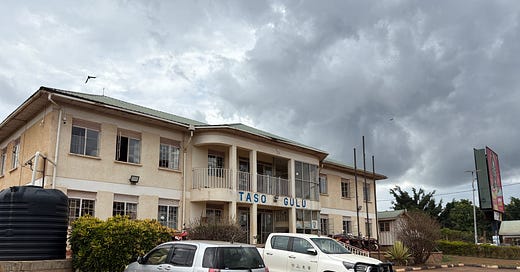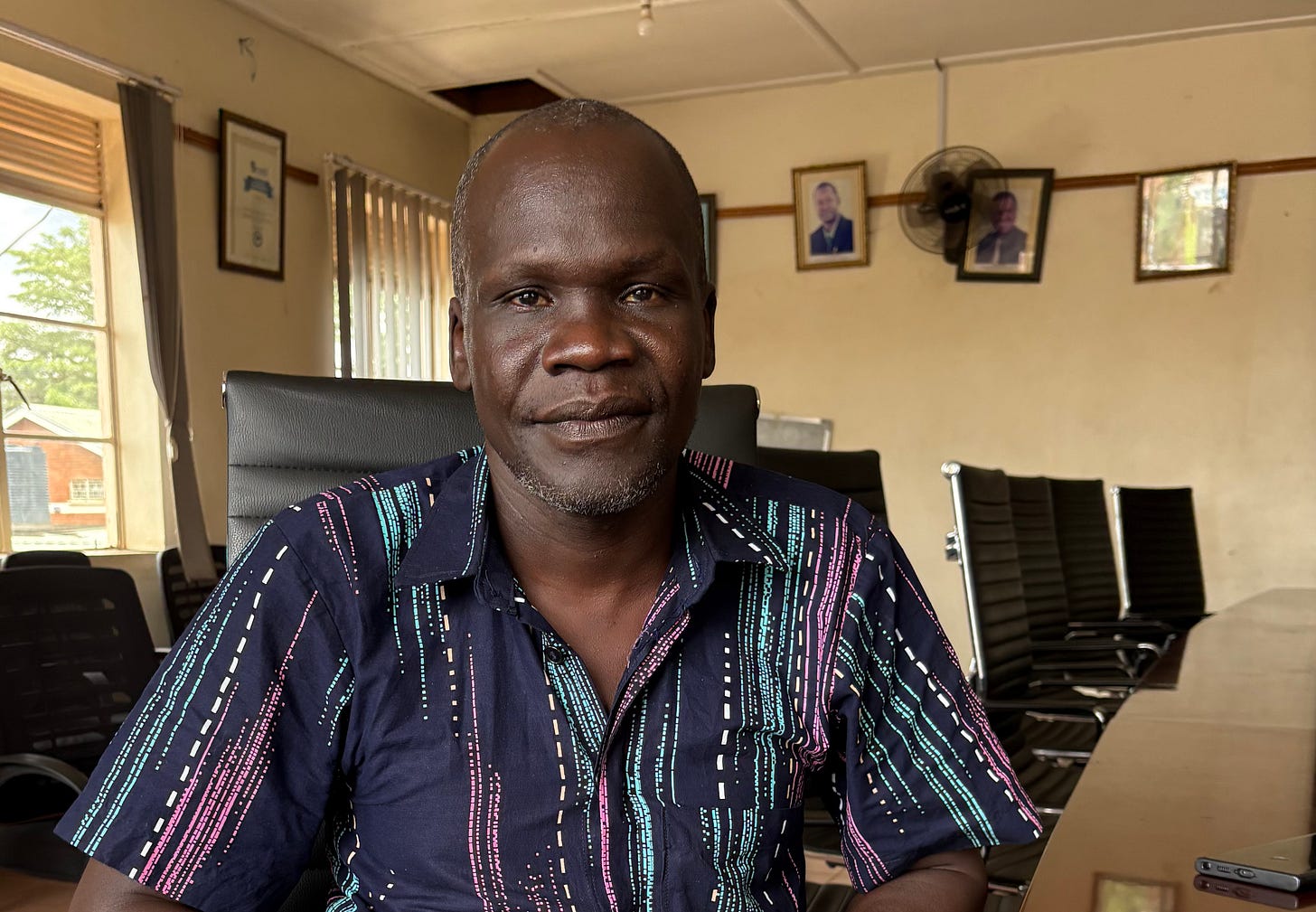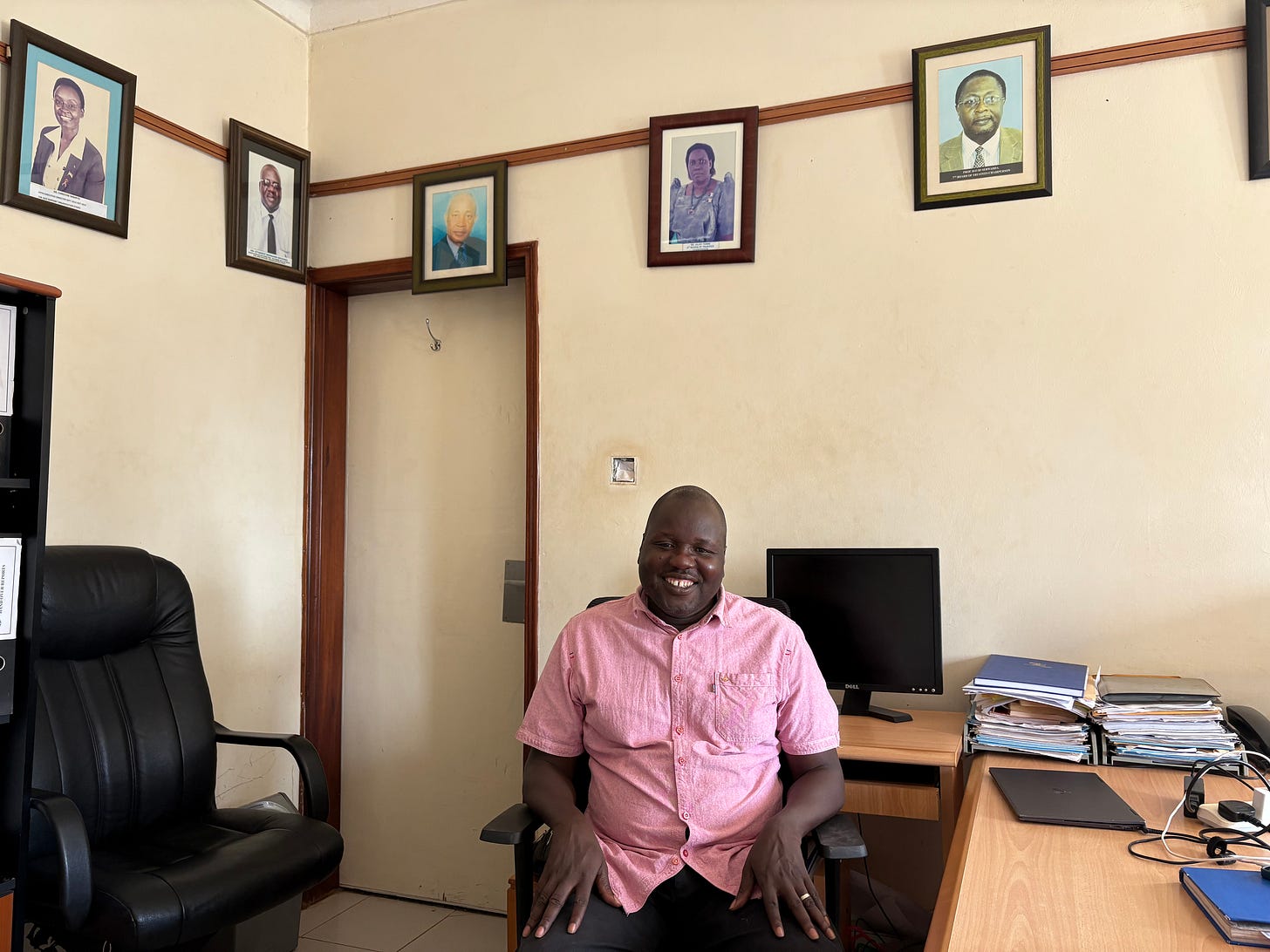'We are going back to like we never started'
The Trump administration promised to protect life-saving HIV treatment. Then it cut funding to a clinic in northern Uganda supporting nine thousand people living with HIV.
In late March, a Ugandan activist I know browbeat some officials to get me into a meeting of the Uganda AIDS Commission.
The gathering was meant to consider the future of Uganda’s HIV response following the aid freeze announced by U.S. President Donald Trump just weeks before. It was quickly apparent the meeting would provide no answers, which may explain why journalists hadn’t been invited.
Amid an uninspiring series of PowerPoint presentations, an official mentioned hearing the main HIV service provider in northern Uganda’s Acholi subregion, The AIDS Support Organisation, had lost all of its U.S. HIV funding. That caught my attention.
In Uganda, the U.S. government has channeled the bulk of its HIV funding through one or two major local service providers in each of the 15 subregions. The provider differs by region. In Acholi, TASO Gulu is one of them. If it was true that the organization had lost its funding, that would mean the subregion, home to nearly two million people, would essentially lose all of its HIV services.
For weeks, I had been reporting on Washington’s seemingly capricious slashing of HIV programs. I had discovered small pockets of the country that were already without HIV prevention or treatment programs. But this was the first I’d heard of the Trump administration abandoning an entire subregion.
When I talked to the official after the meeting, he could not confirm the report. I found that even more disturbing. That Washington might be walking away from these life-saving programs without even bothering to prepare the Ugandan government for the crisis U.S. officials were creating.
The following week I was on a bus to Gulu, the city at the heart of the Acholi subregion. If it turned out the official was right, it would be a stunning betrayal of a region that has already withstood unimaginable hardship.
---
TASO arrived in Gulu at the height of the Lord’s Resistance Army’s insurgency.
Led by a deranged prophet, Joseph Kony, the LRA ostensibly sought to overthrow Uganda’s government. The insurgency’s initial field of battle, though, was northern Uganda, hundreds of miles from the capital, Kampala.
Beginning in the early 1990s, Kony would loose his fighters on the region’s villages and towns, murdering adults and kidnapping their children. He would force the abductees into his ranks. If they refused, he would order other children to kill them.
The Ugandan government’s response was to drive people from their homes into camps hastily constructed in the region’s towns and cities. The camps would be easier to defend, officials promised the civilians. Instead, they became slaughtering grounds. Over and over, Ugandan troops melted away in the face of LRA assaults, leaving defenseless civilians to be massacred.
HIV descended on the region alongside this carnage, sped along by desperate people suddenly crowded into inhumane conditions. It was in 2004, in the midst of this suffering that TASO, a homegrown AIDS support organization, decided to open a branch in Gulu. Opok Martin Cankara was one of the first employees.
It was not a good experience working with an HIV setting. You see somebody in a clinic today. After one week, you will not see the patient. He’s already dead.
He would not know if they succumbed to the LRA or to AIDS.
By 2006, the LRA was largely driven out of northern Uganda. Poverty lingered, though, and so did the disease at rates higher than most anywhere else in the country. That spurred TASO Gulu to begin building up its programs to raise awareness of HIV and to prevent its spread.
Those efforts have evolved with better interventions and more funding, particularly the support from the United States. TASO Gulu now helps government facilities extend their services to communities. It also distributes the daily pre-exposure prophylaxis, or PrEP, pill that can prevent HIV infection and runs a program that circumcises hundreds of men each year, dramatically reducing their risk of acquiring the disease.
Cankara, who is extremely mild mannered, gets animated when he starts talking about the HIV treatment program he helped to build. It began in the mid-2000s with anti-retroviral therapy for only 30 people.
We moved from 30 to 300. From 300 to 900. And then a new guideline was brought in.
In 2016, the Ugandan government announced a policy of “test and treat.” Any client who received a positive HIV diagnosis could immediately start on drugs. It didn’t matter how sick they were.
That is when we enrolled massively.
At TASO Gulu, the number of clients living with HIV has ballooned to nine thousand, Opok tells me with no little pride. That is more people on treatment than at the neighboring regional referral hospital.
And up to today, we have never run out of ARVs.
That may no longer be true, if the reports of the funding cuts are accurate.
---
I arrive in Gulu after an eight-hour bus journey, much of it spent getting kicked by my neighbor’s restless toddler.
TASO Gulu’s squat, concrete clinic is quiet when I approach, and there is no one in the covered waiting area. I turn into the administrative building next door to find a lobby that looks like it has been converted into a garage. Rows of motorcycles are stacked against each other, dripping oil on the tiled floor.
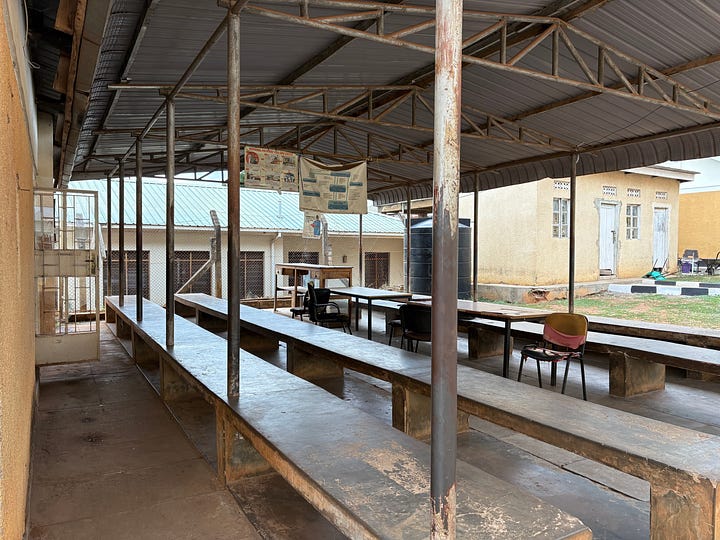
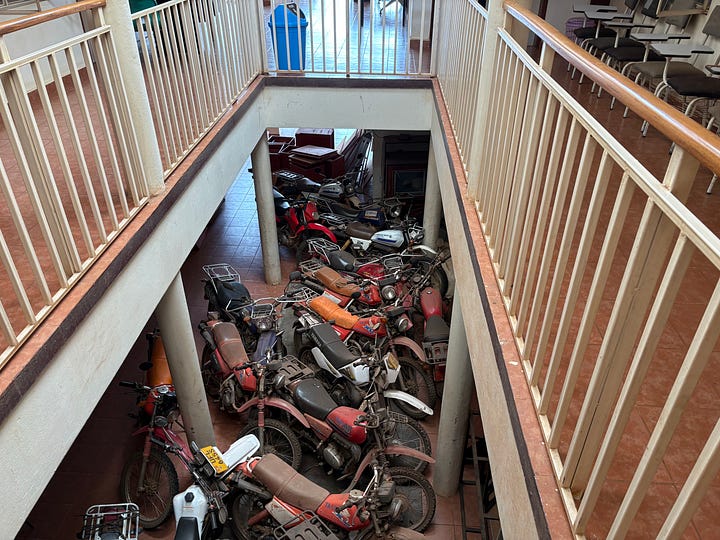
I make my way upstairs to the office of Walter Okema, who heads TASO Gulu. He strikes me as someone in persistent battle with his own natural jollity. I suspect he thinks his quicksilver smile does not fit the seniority of his position.
But it disappears all too readily after I explain my mission to find out what U.S. funding has been eliminated. He sits quietly for several moments under the solemn portraits of former TASO leaders. They also seem to be glaring at me.
I think his hesitance stems from a hope that funding might be restored, if only officials can avoid antagonizing Washington. This, I believe, is a misunderstanding of the Trump administration, which cares little for preserving the gains of more than 20 years of U.S. investments in the global HIV response. It cares even less for the well-being of the people of Gulu.
I cannot fathom how upsetting this must be, particularly after Okema has dedicated more than 20 years to developing TASO Gulu. But by remaining stalled in denial, I worry that Ugandan leaders have been slow to complete the cycle of grief. That only when they accept the U.S. funds are well and truly gone — at least so long as Trump remains in office — will they finally train their focus not on whatever lifelines they suspect Washington might throw them, but on figuring out how else they might hold back the worst impacts of those cuts.
Finally, Okema relents. He confirms what the empty clinic has already hinted at. TASO Gulu has lost all of its funding from the United States. So has the subregion’s other main recipient of U.S. funding, the Uganda Protestant Medical Bureau. Together they account for nearly all of the HIV services in the city and surrounding subregion.
For TASO Gulu, that has meant shuttering the program to extend government-run services, which explains all of the motorcycles standing idle in the lobby.
It could also mean shutting down their own clinic, Okema explains.
All our activities, all the staff, everything comes from the U.S. So that is how beneficial it has been. I’m talking about nine thousand clients, all are benefiting from the U.S. funding. And we have had this impact that their lives have been preserved all this time, and we really give thanks for that.
Okema still doesn’t know why TASO Gulu had its funding eliminated, while other TASO centers elsewhere in the country are still allowed to operate.
There's no explanation. No explanation. Maybe at the top level, but for us here we don't know why it was it was terminated.
Of course he is confused. Along with the inconsistency, the decision contravenes even the limited promises the Trump administration has made, which included maintaining ARV services for people living with HIV. If TASO Gulu is shut down, there is a very real chance its patients will lose access to ARVs.
Okema knows this. That is why he is doing what he can to keep the clinic operating. He is hoping there are enough ARVs and PrEP in stock to maintain basic services for a few more months. He prays a reprieve will come in the interim.
The entire TASO Gulu staff has agreed to stay in their roles, at least in a limited capacity, even though there is no money to pay their salaries.
These staff are volunteering. Even the people who started TASO, they started on a voluntary basis. The most challenging thing might be the drugs. But for now, we are giving our clients their drugs. I think nobody has missed a drug since that order [from Trump] came.
Okema realizes TASO Gulu won’t be able to hang on much longer, though. Already they are running out of the third-line treatment that they give to patients who have exhausted all of the other options. As more drugs start to dwindle, they will have no choice but to turn their clients over to the Gulu Regional Referral Hospital. There patients will rely on government-funded services run through the outpatient ward.
Imagine now if we are to transfer all these clients to Gulu hospital. Definitely the resources there are also limited. And will there be enough services for our clients? TASO is a specialized clinic. The referral hospital handles so many other diseases.
He expects the sheer number of patients will overwhelm the hospital. He believes some patients will be too fearful of stigma to seek services from an outpatient ward. Others will balk at the waiting time. It seems inevitable that deaths will spike.
It feels like the Acholi subregion is on the brink of being betrayed once again, with consequences just as dire as those during the LRA insurgency.
We are going back to like we never started before.
---
If you’re interested in learning more about the situation in Gulu, you can read an interview with Perry. Born with HIV, she had been using TASO Gulu’s services for decades to access ARVs, but recently switched to Gulu hospital. She explains why she regrets that decision.
You can also read an interview with Florence Amito. TASO Gulu stationed seven community health workers at the government clinic she runs. They helped deliver drugs to people who had trouble traveling, including the elderly, the sick and mothers who could not afford childcare. She talks about the situation now that those health workers have been fired.
You can also read Opok Martin Cankara’s full interview.


